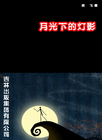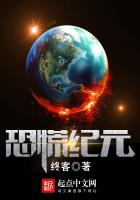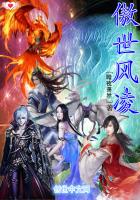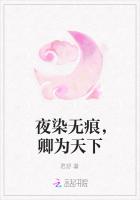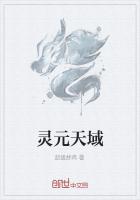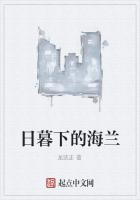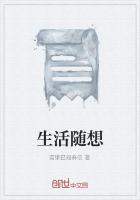After some discussions, they decided to do both simultaneously. They would write a memorandum and an official denunciation to try to force Emperor Hongguang to change his course and revitalize the Ming Dynasty. If the memorandum should fail, military means would be the next course of action. Having written the documents, Liu Jingting volunteered to deliver the denunciation. General Zuo Liangyu and the officials were deeply touched by Liu’s absolute sincerity and prepared wine in honor of his departure.
General Zuo, anxious about internal conflict and foreign aggression, fell ill a few days after Liu Jingting left. Military affairs were therefore left to Huang Shu and his son Zuo Menggeng to handle on his behalf. However, Huang Shu and Zuo Menggeng were impetuous and blundering. They disagreed with General Zuo’s moderate approach and had previously advocated sending troops directly. Now that the general was unwell their opportunity arose. They persuaded the commanders of the thirty six battalions under them to mobilize, consolidate and show their allegiance to the flag. Meanwhile, they carried the seriously ill General Zuo onto a boat and burned down all the barracks to show their determination to fight to the bitter end. Success or failure, they would never return to Wuchang.
He Teng jiao, the newly appointed governor of Hunan and Hubei, agreed with General Zuo Liangyu. He was against hastily sending troops for fear that blind and rash actions would adversely affect the overall situation. However, he had no choice. He was forced into submission and went along w ith army. Following the troops unwillingly, he was angry but hopeless. He was so despairing over the fate of the country and his own future that he committed suicide by drowning himself in the river on the way to Nanjing. At the news, General Zuo Liangyu was frustrated and angry, further aggravating his illness. On the fourth day of April, Huang Shu and Zuo Menggeng led a mighty army of three hundred thousand soldiers with thousands of ships to Jiujiang.
When the news reached Nanjing that Zuo Liangyu’s army was marching eastwards, Ma Shiying trembled with fear and hurriedly discussed countermeasures w ith Ruan Dacheng. Having read the military newsletter, Ruan Dacheng thought for a while and then said calmly, “This is easy to handle. You must immediately order Huang Degong, the Lord of Jingnan to defend Luzhou staunchly. Then dispatch Liu Zeqing to come and protect Nanjing and order Liu Liangzuo, the Lord of Guangchang, to go south with his troops to defend the Yangtze River.”
Ma Shiying hesitated, “I am afraid that this will not work. At present, the Manchu army is bearing down on our borders. If I dispatch these two generals to march southwards, who do we have to fight the Manchu army?”
Ruan Dacheng laughed, “Right now the most important thing is to prevent Zuo Liangyu’s troops from marching eastwards. You can tell the two generals frankly that they are not to worry even if Taihe and Yingzhou might be occupied by the Manchus or if Shouzhou might be in critical state. They can even leave Fengyang and Linhuaiguan undefended. However, they should give top priority to fighting Zou Liangyu. We now have two powerful enemies. If Zuo Liangyu makes his way into Nanjing and crowns a new Emperor, then all of us will be finished and probably executed. As long as we defeat Zuo, even if Manchu troops succeed, we could relocate the capital to Hangzhou, where we would still live an easy and comfortable life by the West Lake, just like the Emperor and court officials of the Southern Song Dynasty.
At these words, Ma Shiying felt relieved and dispatched Liu Zeqing and Liu Liangzuo to march southwards to fight Zuo Liangyu. As a result, all the troops which were holding back the Manchus withdrew from their posts, leaving behind only a small army of three thousand men led by General Shi Kefa in Yangzhou.
When General Zuo Liangyu’s troops arrived in Jiujiang, governor Yuan Jixian left the city to greet the general. He said, “When we discussed military affairs the other day, did you not make the decision that we should first present a memorandum and send troops only if Emperor Hongguang refused to come to his senses? Why did you send troops in rebellion before we received any reply? I am afraid this is not the right thing to do and I still advocate trying peaceful means before resorting to force”.
General Zuo Liangyu found it hard to justify himself and had to agree to station his troops in Jiujiang and wait for news from Nanjing before deciding whether any further advance would be necessary. Yuan Jixian bade him farewell and returned to Jiujiang. However, little did Yuan know, his officers had betrayed him by colluding with Huang Shu and Zuo Menggeng. They disobeyed Yuan’s orders, opened the gates and allowed Zuo Liangyu’s troops enter the city. They soon mobilized their troops to join the fight against Ma Shiying and Ruan Dacheng.
When General Zuo saw the fire in the city of Jiujiang, he knew that his men had disobeyed his orders and violated the agreement not to attack the city. The General furiously shouted, “I have betrayed Yuan Jixian!” And with these words, he spat out blood and died.
After the death of the General, his son succeeded him as the commander-in-chief of the mighty army of three hundred thousand soldiers. Zuo Menggeng kept his father’s death a secret and did not arrange a funeral. Meanwhile, he coerced Yuan Jixian into joining the coalition to fight Ma Shiying and Ruan Dacheng. Since the troops which were defending the area from Jiujiang to Anqing used to be under Yuan Jixiang’s command, Zuo Menggeng and his army progressed smoothly. They quickly broke through and later captured Hukou, Dongliu, Anqing among other cities and soon approached Guichi and Tongling. However, Zuo Menggeng was young and inexperienced. His strategy and experience were incomparable with that of his father. He and his army were ambushed by Huang Degong at Tongling and they lost the battle. After that, the momentum of the war was irreversible and his troops were eventually blocked in the region of Guichi and Tongling.




